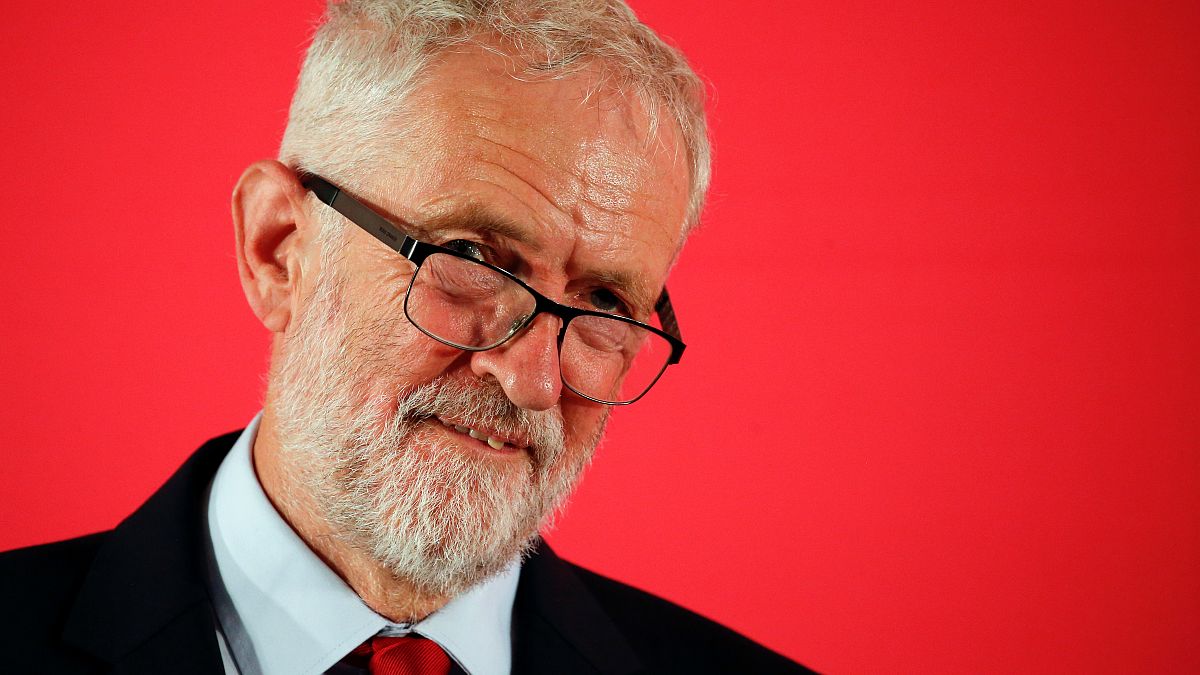As British political parties start campaigning for a general election that has yet to be agreed upon, a new poll has found that it would be in the opposition's interest to delay the vote until after the October 31 Brexit deadline.
As British political parties start campaigning for a general election that has yet to be agreed upon, a new poll has found that it would be in the opposition's interest to delay the vote until after the October 31 Brexit deadline.
A Liberal Democrats spokesperson confirmed to Euronews on Friday that they will not vote for a general election until an extension is agreed with the European Union. They added that a "constructive meeting" with Labour and the Scottish National Party (SNP) had found them "in agreement" not to let Prime Minister Boris Johnson "cut and run."
Ian Blackford, the SNP's leader in Westminster, also told the BBC after the aforementioned meeting on Friday that "We will have that election when the time is right but I will make you this promise, we are not going to have a long wait."
READ MORE: UK opposition parties agree to block general election
For the main opposition Labour party, the right time might just be after October 31.
A ComRes survey commissioned by poll aggregator Britain Elects released on Saturday found that the ruling Conservative party would gather 30% of the vote if the snap election was held before October 31 and Brexit had not been delivered — a three percentage point lead over its nearest rival Labour.
But when asked about who they'd vote for if the general election takes place after October 31 and after a third extension to Brexit has been secured, the 2,000 respondents gave the edge to Labour who would take 28%, ahead of the Conservatives' 26%.
In both cases, the Liberal Democrats were expected to gather about a fifth of the vote, while the Brexit Party, headed by Brexiteer-in-chief Nigel Farage, would get a slightly better result after October 31 (17% compared to 14% before the Brexit deadline).
READ MORE: Could new UK PM Boris Johnson call a snap general election?
Johnson's authority has been severely diminished following three parliamentary defeats last week.
The opposition and rebel Conservative MPs fast-tracked and passed legislation that will force him to ask EU leaders for a Brexit extension if no deal had been agreed by lawmakers before the October 31 deadline.
To derail their attempt, the British leader tabled a motion for a snap election which was swiftly rejected by the opposition, whose support he needed to bring about the anticipated ballot.
His decision to expel rebel MPs from the party only highlighted once more just how divided the Conservatives are over Brexit and prompted the resignation of his own brother, Jo Johnson, and Amber Rudd, respectively science and universities minister and work and pensions minister, in protest.
Reports also emerged that lawmakers opposed to a hard Brexit were mounting a legal challenge should Johnson decide to ignore the legislation and proceed with taking the country out of the bloc without an agreement.
READ MORE: Amber Rudd resigns from UK Cabinet over sacking of rebel MPs
But the opposition's hope that the UK can get a third Brexit extension to the end of January 2020 is not assured. Leaders from the 27 other EU member states would have to unanimously agree to it.
France's top diplomat, Jean-Yves Le Drian, told Europe 1 radio on Sunday on the subject of another Brexit delay: "As things stand, it's 'no'."
"The British say they want to come up with alternative solutions to ensure the withdrawal, we have not seen them. So it's 'no'. We are not going to do (extend) this every three months," he said, adding: "It’s very worrying. The British must tell us what they want."
READ MORE: Bitesize Brexit: A summary of Boris Johnson's terrible week in parliament


